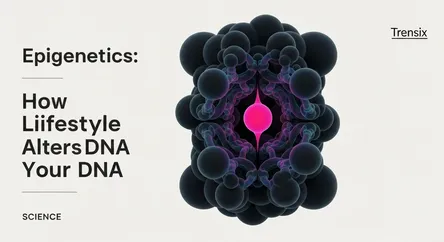Science
Epigenetics: How Lifestyle Alters Your DNA

Explore epigenetics, the study of how your environment and behaviors can cause changes that affect the way your genes work without altering DNA.
What is it?
Epigenetics is the study of heritable changes in gene expression that do not involve alterations to the underlying DNA sequence. Think of your DNA as the hardware in a computer; epigenetics is the software that tells the hardware how to function. These modifications, such as DNA methylation and histone modification, act as switches that turn genes on or off. They can be influenced by various factors and are often reversible, providing a crucial link between genetics, environment, and individual traits.
Why is it trending?
The field of epigenetics is exploding because it revolutionizes our understanding of heredity and disease. It helps explain how environmental factors like diet, stress, and exposure to toxins can leave a lasting mark on our genes and even be passed down to future generations. With advancements in sequencing technology, scientists can now map these epigenetic changes across the genome, leading to groundbreaking insights into aging, cancer, and mental health. This has shifted the focus from a purely gene-centric view to a more nuanced understanding of how nature and nurture interact.
How does it affect people?
Epigenetics has profound implications for personal health. It explains why identical twins can develop different diseases and traits despite having the same DNA. Many conditions, including various cancers, autoimmune disorders, and neurodevelopmental issues, have been linked to epigenetic dysregulation. This knowledge is paving the way for new diagnostic tools and therapeutic strategies, such as drugs that can reverse harmful epigenetic changes. It also empowers individuals by highlighting how lifestyle choices in diet, exercise, and stress management can positively influence their gene expression and long-term well-being.